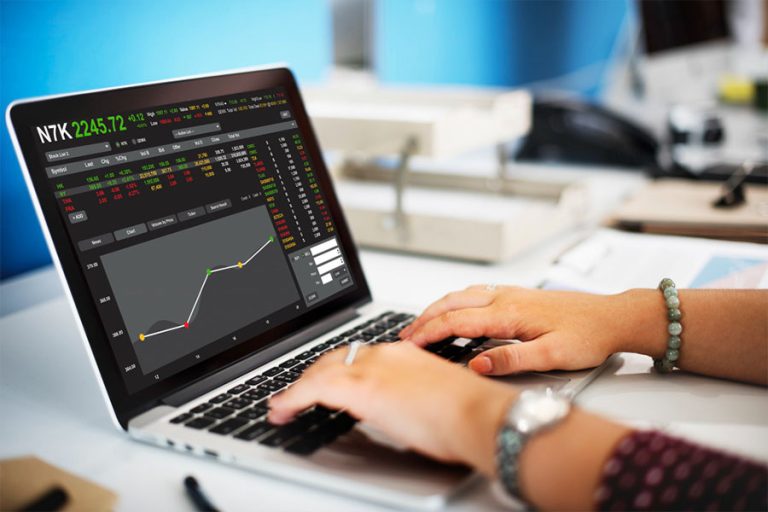How to Identify Forex Scams: A Comprehensive Guide

The forex market, trading over $6.6 trillion daily as of April 2019, is a lucrative field but also a fertile ground for scams. This vast amount of money circulating in an unregulated spot market makes it an attractive arena for unscrupulous operators. Though enforcement actions by organizations like the Commodity Futures Trading Commission (CFTC) and the National Futures Association (NFA) have curbed many deceptive practices, new and old scams continue to lurk. Here’s how to identify forex scams to protect your investments.
Understanding Common Forex Scams
1. The Spread Scams: Historically, one of the prevalent scams involved the manipulation of bid-ask spreads. Brokers would set unusually wide spreads on currency pairs, increasing transaction costs, thus making it harder for traders to profit. This practice has diminished over the years but remains something to watch out for, especially with brokers not regulated by reputable financial authorities.
2. Signal Seller Scam: Another modern scam involves signal sellers. These entities charge a fee, promising to deliver trading signals that will supposedly lead to significant profits. They boast extensive experience and showcase testimonials from clients they have purportedly made wealthy. Unfortunately, many such sellers collect fees from traders and vanish or underperform significantly.
3. Forex Robot Scams: Nowadays, a common scam comes from forex robots—automated trading systems that promise to generate significant profits without human intervention. Often, these robots are sold with a guarantee of high performance without any credible performance verification. Potential traders should be skeptical of any trading system that hasn’t been transparently tested and proven.
Red Flags and Warning Signs
- Exorbitant Spreads: If the broker’s spreads on major currency pairs like EUR/USD are significantly wider than the industry norm (typically 2-3 pips), be cautious.
- Lack of Regulation: Always check if the broker is regulated by a legitimate body like the CFTC, NFA, or equivalent authorities in their country of origin. Unregulated brokers, especially those offshore, are a major red flag.
- Guaranteed Returns: Be wary of anyone promising high profits with low risk. The forex market, like any investment, involves a degree of risk, and no returns can be guaranteed.
- Difficulty Withdrawing Funds: A major red flag is when traders face hurdles withdrawing their funds from the broker’s platform. This issue can often signify deeper problems with the broker’s financial stability or integrity.
- High Costs for Trading Systems: Be cautious of trading systems advertised at high prices. Legitimate systems should not cost thousands of dollars. A fair market price is usually a few hundred dollars, and often, these systems should be backed by some form of performance evidence.
10 Steps to Follow If You Suspect a Forex Scam
Discovering that you’ve fallen prey to a forex scam can be distressing, but it’s crucial to take swift and effective actions to mitigate the impact. Here are some steps to follow if you suspect you’ve been scammed:
1. Halt All Further Transactions: As soon as you suspect a scam, stop any ongoing transactions with the suspected scam entity to prevent more losses.
2. Gather and Organize Evidence: Compile all records related to the scam, including emails, transaction details, and any communications you’ve had with the entity. This evidence is crucial for any formal complaints or legal actions you might pursue.
3. Report the Incident: Inform relevant regulatory bodies about the scam. If you’re in India, for instance, contact the Securities and Exchange Board of India (SEBI) and your local law enforcement authorities. Provide them with detailed information and documentation.
4. Contact Your Financial Institution: Alert your bank or financial service provider about the fraudulent activity. They may be able to help by stopping further transactions or attempting to recover lost funds.
5. Consult a Legal Expert: Get advice from a lawyer who specializes in financial fraud. They can offer guidance on the legal options available to you based on your situation.
6. Submit an Online Complaint: Utilise the online complaint systems provided by many regulatory authorities to officially lodge your case. Make sure to include all the pertinent details and supporting evidence.
7. Alert the Community: Help prevent others from being scammed by sharing your experience on credible platforms and social media forums.
8. Monitor Your Financial Accounts: Keep a vigilant watch over your financial accounts for any unusual activities. Promptly report any unauthorised transactions to your financial institution.
9. Stay Educated About Scams: Continuously educate yourself about the different types of forex scams and their warning signs. This knowledge is key to avoiding future scams.
10. Seek Expert Financial Guidance: If you find the recovery process overwhelming, consider hiring a financial advisor or consultant who specializes in dealing with fraud recovery to guide you through the steps.
How to Avoid Being Scammed
1. Conduct Thorough Research: Before engaging with a broker or a trading system, conduct extensive research. Check their regulatory status via resources like the Background Affiliation Status Information Center (BASIC) provided by NFA.
2. Verify Track Records: Any legitimate entity should be able to provide a comprehensive and transparent track record of their performance.
3. Understand the Fees: Clearly understand how the broker structures their fees and other possible costs associated with trading.
4. Read Reviews and Testimonials: Look for reviews from multiple sources. Remember, overly positive testimonials can also be a part of the scam, so they should be taken with a grain of salt unless verified independently.
5. Demo Accounts: Use demo accounts to understand how the trading platform works without committing real money. This method can also help in identifying any potential operational issues with the platform.
Conclusion
The allure of quick profits in forex trading can often lead inexperienced traders into scams. Educating yourself about the common types of forex scams and recognizing the red flags can protect you from potential losses. Always approach forex trading with a healthy dose of skepticism and perform due diligence before committing your capital. Stay informed, stay skeptical, and trade safely.







